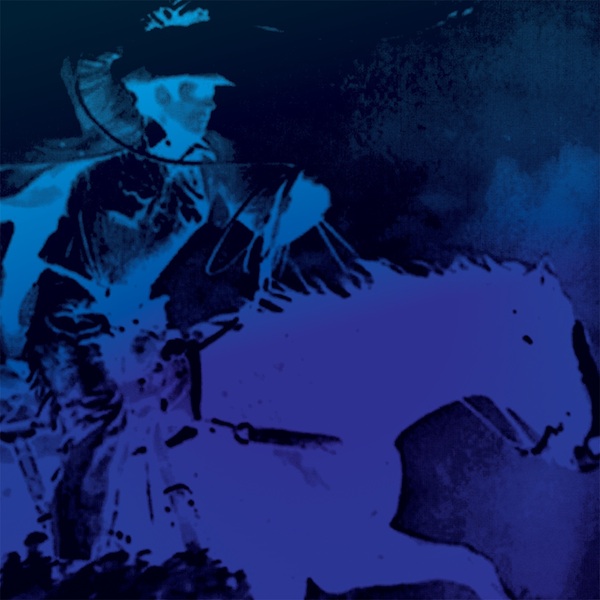It’s a curious prospect, the musical marraige of perhaps the two most visible heads of a genre, but such is the state of ambient music in 2012, and with a notable exception in perhaps the continued presence of the Godfather of the genre, Brian Eno, Daniel Lopatin and Tim Hecker have become it. That’s not to say that these dudes haven’t put in the work. Lopatin’s output under his Oneohtrix Point Never moniker has run the gamut from noisy endurance tests to vintage synth space explorations to sliced vocal microsampling all the while staying largely within genre conventions. Hecker, meanwhile, has made a storied career out of a more monotonic approach, crafting piano based waves of noise and arranging them into some pseudo-musical field of sound. Both approach ambient music from the producer side and both, in 2011, were anointed as the heirs apparent to the ambient thrones based on their outstanding efforts on Replica and Ravedeath, 1972, respectively.
Even from that brief description, it should become readily apparent that despite their basic home in the genre, Hecker and Lopatin’s respective approaches mine entirely different corners of the genre. It is for that reason that when Instrumental Tourist was announced and a promo photo featured Hecker toting a saxophone that jokes about a free jazz album were largely taken seriously; no one was quite sure what a Tim Hecker and Daniel Lopatin album would sound like, so anything fell into the realm of possibility. The answer is, upon listening to the album, a sometimes uneven mix of their respective sounds. A Tim Hecker album with OPN’s sample library–waves of noise and drones that would be organic on a Hecker album rendered sterile in the presence of Lopatin’s swift, chopping hand.
“Uptown Psychedelia” opens the record with its most texturally rich moments, the most beautiful marriage of Ravedeath and Replica imaginable. Tipsy drones are upended by the barest of synth notes and a booming bass. It’s brisk in its own way, but largely unsettling in its synthesis of the organic nature of Hecker’s drones and the inhuman force of Lopatin’s contribution. Over the course of its six minutes it stays largely static content to mine the emotive power of such a combination to its fullest extent, but it is in contrast with the brilliance of this opening track that the pitfalls of the record become most apparent.
While the drones and tones on Instrumental Tourist deal in similar sonics to both Hecker’s and Lopatin’s solo work (though generally representing a harmonious fusion of the two), by and large the record lacks the vitality and sense of purpose that underlies the best of each of their solo catalogs. “Racist Drone” takes the spacey synth burps that Lopatin’s long mined to great nostalgic effect on his solo material and splatters it with synthetic bird calls and the distant plink of Asiatic instrumentation. It’s pleasant enough on a surface level, but it’s texturally shallow, functioning as an exotic sonic wallpaper when their solo catalogues often deal so heavily in creating living, breathing, fully formed sonic environments.
It’s noted in the press release that Hecker and Lopatin worked in studio together in a sort of improvisational manner. With sonic palettes composed of largely synthetic tones in tow, its easy to imagine the entirety of Instrumental Tourist conceived in a series of blissed-out computer laden jam sessions. It’s pleasant, unsurprisingly enough, in both its sonic direction and minimal production, but it lacks the sense of overwhelming purpose usually found on both artists’ solo records. Each of their solo works feel tightly composed. They’re driving excursions through wastelands of synthy noise, and though Instrumental Tourist inhabits those same realms, its pace is more leisurely, its pulse dulled.

